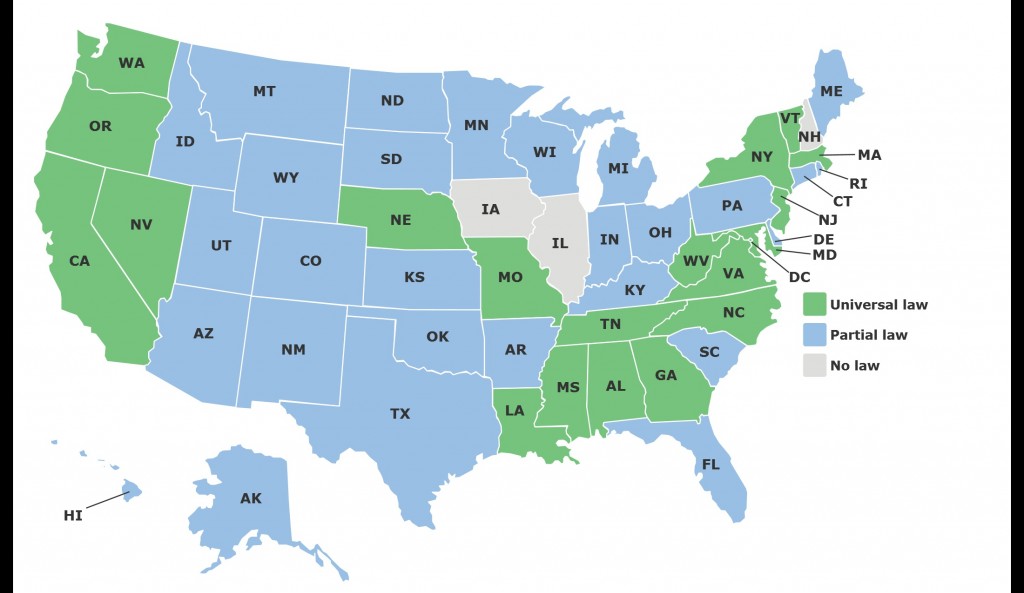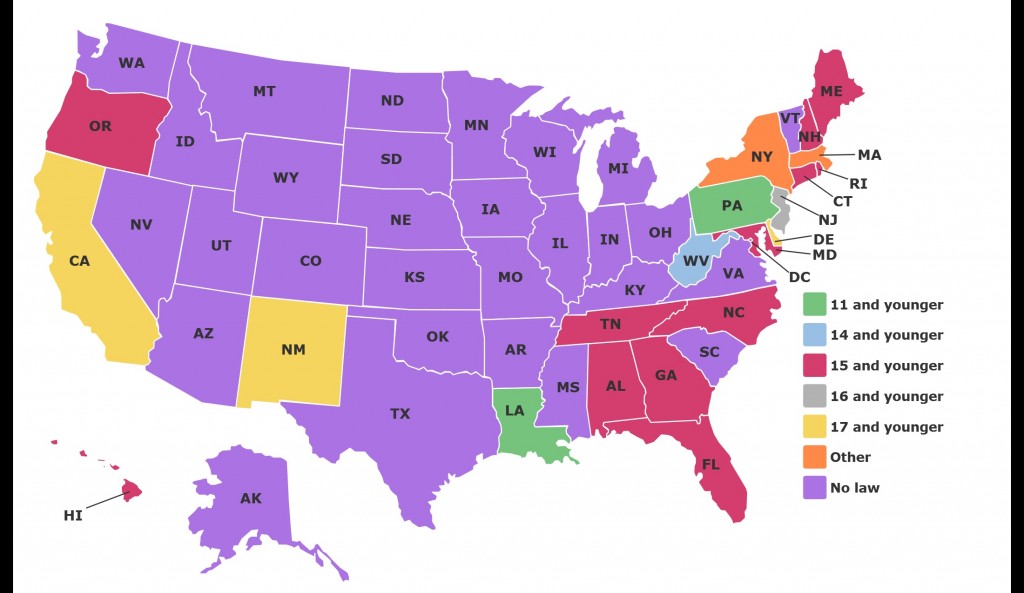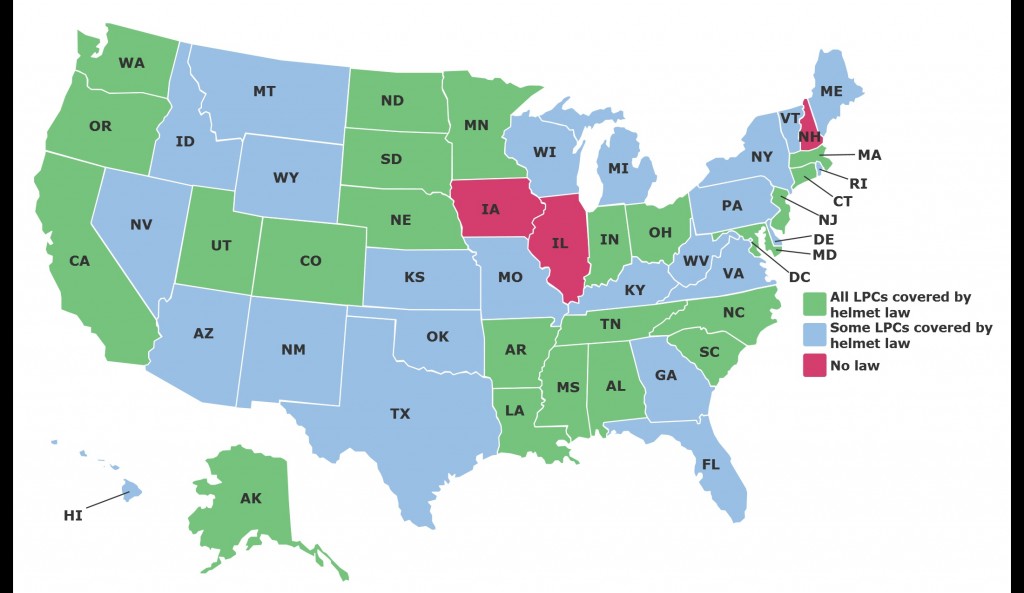

The history of motorcycle helmet laws in the United States is characterized by change. In 1967, to increase motorcycle helmet use, the federal government required the states to enact helmet use laws in order to qualify for certain federal safety programs and highway construction funds. The federal incentive worked. By the early 1970s, almost all the states had universal motorcycle helmet laws. Michigan was the first state to repeal its law in 1968, beginning a pattern of repeal, reenactment, and amendment of motorcycle helmet laws. In 1976, states successfully lobbied Congress to stop the Department of Transportation from assessing financial penalties on states without helmet laws.

No state has a universal bicycle helmet law. Only 21 states and the District of Columbia have statewide bicycle helmet laws, and they apply only to young riders (often riders younger than 16). Local ordinances in a few other states require bicycle helmets for some or all riders.

Low-power cycle is a generic term used by the Institute to cover motor-driven cycles, mopeds, scooters, and various other 2-wheeled cycles excluded from the motorcycle definition. While state laws vary, a cycle with an engine displacement of 50 cubic centimeters or less, brake horsepower of 2 or less, and top speeds of 30 mph or less typically is considered a low-power cycle. Twenty-three states have motorcycle helmet laws that cover all low-power cycles. Twenty-four states and the District of Columbia have laws that cover some low-power cycles.

Source: IIHS